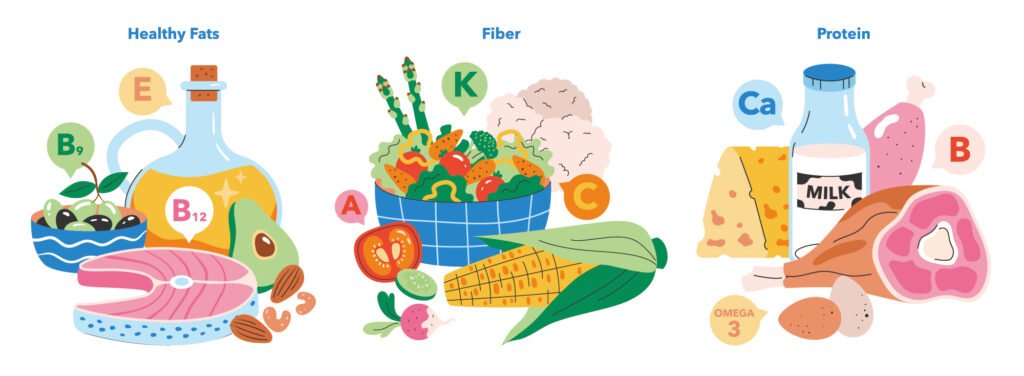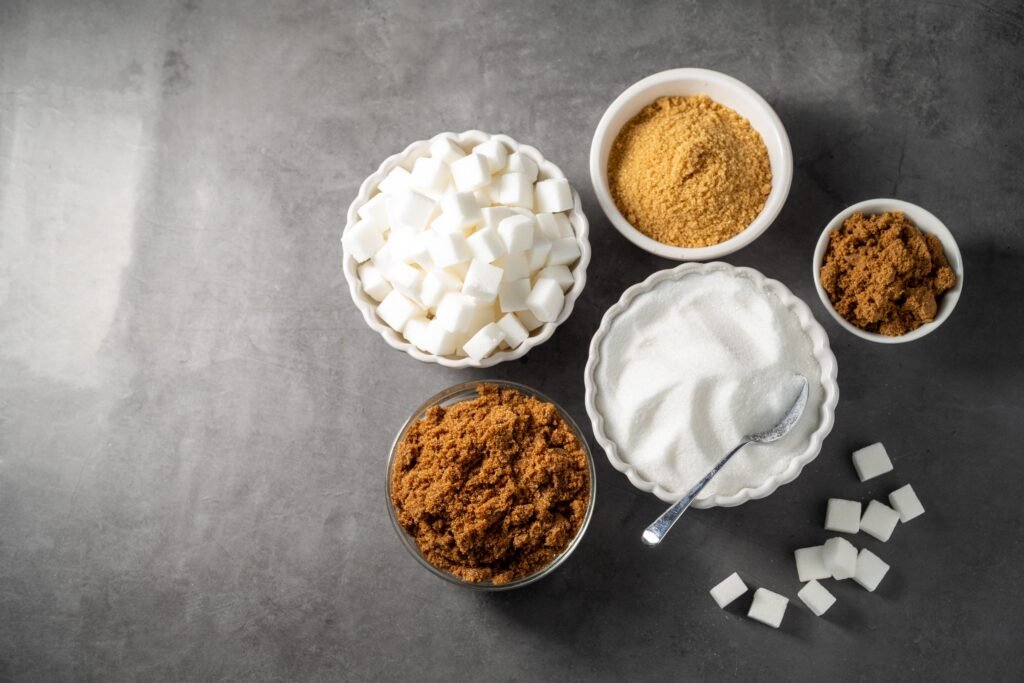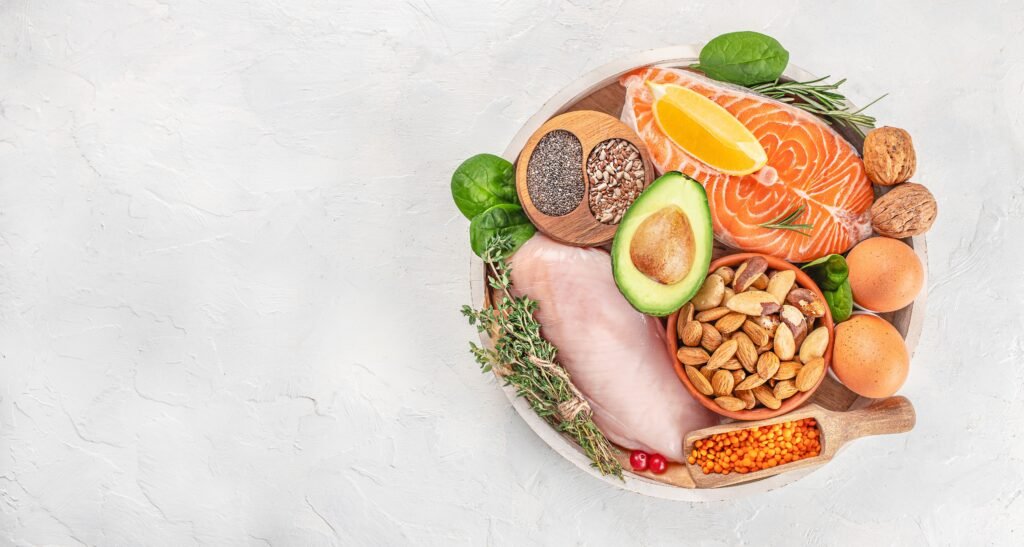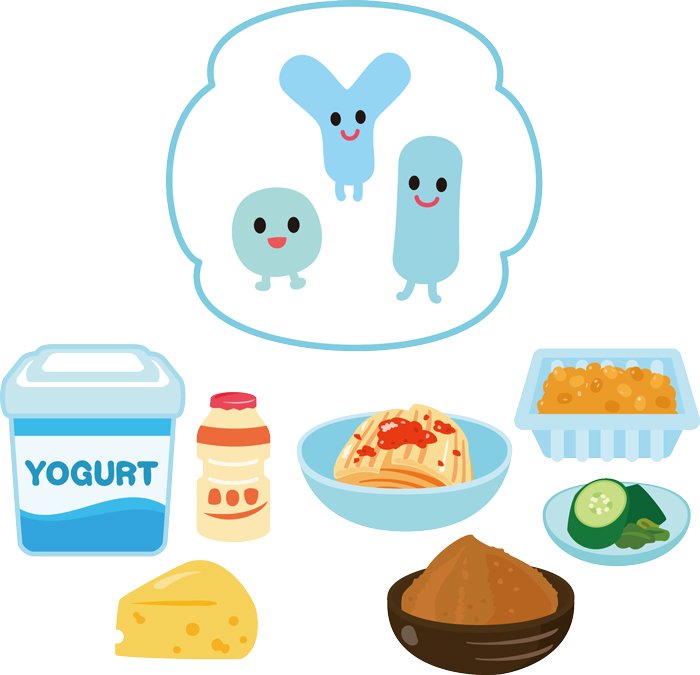How What You Eat Shapes the Health and Appearance of Your Skin
Your diet and your skin are deeply connected — more than you might realize. Consuming appropriate foods for healthy skin is crucial, as what you eat every day doesn’t just fuel your body; it also shapes the health and appearance of your skin. After all, your skin is the largest organ and a mirror of your overall well-being.
From hormonal changes to stress levels, hydration to sleep patterns, countless internal factors impact how your skin looks and feels. Among them, your daily diet stands out as one of the most powerful influencers.
The food you eat can support collagen production or accelerate inflammation. It can brighten your complexion or trigger breakouts. In this article, we’ll explore the scientific relationship between diet and skin health, and uncover how making smarter choices at the table can lead to lasting changes in the mirror.
There’s a strong link between diet and skin health, supported by recent studies.
1. Nutrients Are the Building Blocks of Your Skin

Skin regenerates every 28 days, replacing old cells with new ones — a process that requires a constant supply of nutrients. Without the right ingredients, your skin’s repair and protection systems weaken.
Key Nutrients for Healthy Skin
To maintain skin elasticity, clarity, and smooth texture, you need the following:
- Vitamin A: Supports cellular turnover
- Vitamin C: Boosts collagen and fights free radicals
- Zinc: Reduces oil production and soothes inflammation
- Selenium: Protects against UV-induced damage
- Protein: Essential for structure and repair
Therefore, your skincare routine truly begins with your plate — not your products.
🔗 The best protein sources to include in a healthy diet
2. Sugar and Refined Carbs Are Skin Saboteurs

If you’re struggling with acne or dull skin, it might be time to examine your diet and skin connection.
The Blood Sugar Spike Effect
Sodas, pastries, white rice, and white bread may taste comforting, but they cause rapid spikes in blood sugar. This leads to increased insulin, which in turn causes more sebum (oil) production and systemic inflammation — two key contributors to acne and premature aging.
Long-Term Consequences for Skin
In the long run, this internal inflammation can break down collagen and elastin, accelerating wrinkles and sagging. Therefore, cutting back on sugar isn’t just good for your waistline — it’s essential for youthful skin.
🔗 Harvard Health – Diet and Acne
3. Hydration: The Underrated Skincare Essential

Why Dehydration Affects Skin
If your skin feels tight, flaky, or dull, the real issue might not be your moisturizer — it might be dehydration. Water supports circulation, detoxification, and the maintenance of the moisture barrier that protects your skin from environmental stress.
How to Stay Hydrated for Glowing Skin
- Drink at least 1.5–2 liters of water daily
- Limit caffeine and alcohol, which have diuretic effects
- Eat water-rich foods like cucumbers, watermelon, and tomatoes
Hydration is the simplest, cheapest, and most overlooked skincare step.
👉 Moisturizer Guide: Barrier Support for Radiant Skin
4. Healthy Fats Strengthen Your Skin Barrier

The Role of Essential Fatty Acids
The skin’s outer layer is made up of lipids that protect it from external irritants and prevent moisture loss. These lipids rely heavily on dietary fats — particularly omega-3 and omega-6 fatty acids.
Best Fat Sources for Skin
- Salmon, walnuts, avocado, olive oil: Support elasticity and reduce inflammation
- Lack of essential fats: Can lead to dryness, sensitivity, and flaking
As a result, adding the right fats to your meals can dramatically improve skin resilience.
🔗 Diets rich in plant-based foods linked to healthy aging
5. Gut Health and Skin Health Are Deeply Connected

What Is the Gut–Skin Axis?
The emerging concept of the gut–skin axis is reshaping how we understand skin disorders. A healthy gut microbiome can lower inflammation, strengthen immunity, and reduce flare-ups of acne, eczema, and rosacea.
How Gut Imbalance Triggers Skin Issues
When the gut lining is compromised (a condition known as “leaky gut”), toxins can enter the bloodstream and cause widespread inflammation — including on your skin. Consequently, skin may react with acne, redness, or hypersensitivity.
Foods That Support Gut and Skin
- Probiotics: Yogurt, kimchi, miso, sauerkraut
- Prebiotics: Garlic, oats, bananas
- Fiber: Promotes regular digestion and feeds healthy gut bacteria
🔗 Frontiers – Gut–Skin Axis in Health and Disease
Your Action Plan: Eat for Better Skin

Understanding how diet affects skin is key to building a skincare routine that works from the inside out.
| Skin Goal | Smart Choices |
|---|---|
| Reduce sugar | Whole grains, berries |
| Strengthen skin barrier | Salmon, avocado, olive oil |
| Boost antioxidant intake | Green tea, leafy greens |
| Stay hydrated | Water, water-rich veggies |
| Improve gut health | Yogurt, oats, fermented foods |
To summarize the contents : Glowing Skin Starts at the Table
Too often, we rely solely on skincare products to fix what’s wrong on the surface — without addressing what’s happening underneath. But the truth is, your skin reflects the quality of your nutrition, every single day.
Even small changes in your eating habits can bring noticeable results in just a few weeks. A balanced, anti-inflammatory diet can reduce acne, slow down aging, and help you feel better from the inside out.
Your skin doesn’t lie — it tells the story of what you’ve been feeding it.




Pingback: Why a Calorie Deficit Is the Foundation of All Weight Loss - GlowTrek